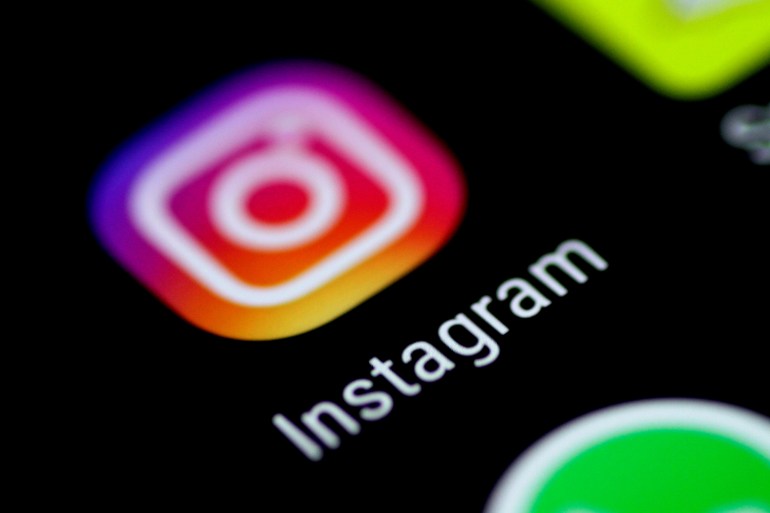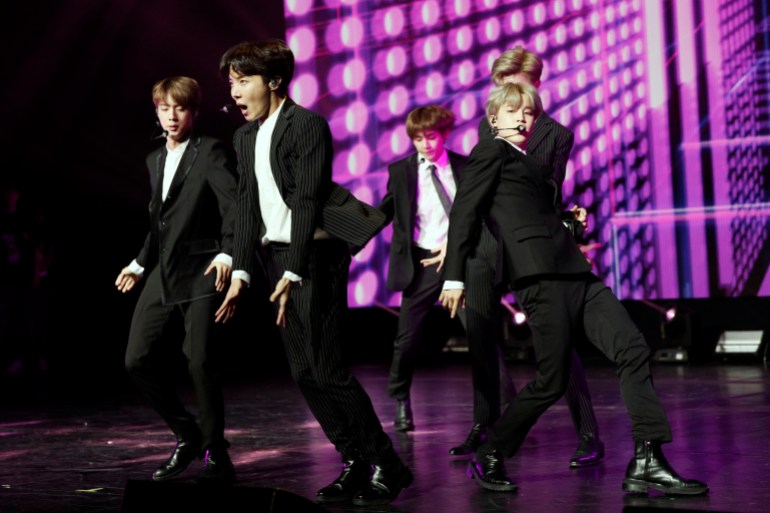Evergrande, Instagram’s harm to teen girls, and India’s K-craze
We gather the numbers to know from the week’s biggest economic news stories so you can impress your friends.

Another week has gone by, and Friday is here. What’s the progress on vaccines? Depends on who you ask. Is the pandemic getting better or worse? Depends where you look. And how is the global economy faring as it tries to bounce back from COVID-19? Again, it is in the eye of the beholder. The United Nations warned this week that developing countries could shoulder the lion’s share of the pandemic’s costs.
This week we had an array of numbers and stories to choose from. We handpicked bite-sized, easy-to-digest, news nuggets for you – five numbers we think you need to know going into the weekend.
Keep reading
list of 4 itemsUS general defends calls to China in final months of Trump term
A decade on, Occupy Wall Street’s legacy on income inequality
Trying to heal Afghanistan without international aid
Some are updates on already dismal situations such as the worsening petrol price crisis in Lebanon. Others are new discoveries. The Wall Street Journal this week revealed that Facebook knows exactly how its photo-sharing Instagram app is hurting girls’ mental health.
And of course, we did not forget the story that increasingly has legions of investors on edge. China’s Evergrande Group – the world’s most indebted real estate developer – could be heading for a messy debt default that could have far-reaching consequences for the world’s second largest economy and beyond.
If all this makes you want to hunker down at home, cradle your remote and watch Netflix all weekend, you’re not alone. Indians, locked down to stop the spread of the coronavirus, have been doing just that – bingeing on Netflix. Their oh-so-clear preference? South Korean dramas.
We have those stories and more. So start reading and enjoy the weekend.
10
That’s how many years since Occupy Wall Street protesters gathered in lower Manhattan’s Zuccotti Park. Their protest ignited a national dialogue in the United States and beyond about income inequality, and embedded terms like “the one percent” and “the 99 percent” into the modern lexicon.
Occupy Wall Street was born in the wake of the Great Recession that stretched from December 2007 to June 2009. As the world marks the 10th anniversary of Occupy, Al Jazeera’s Courtney Kealy explores what the movement accomplished, its influence on a generation, and where it’s headed at a time when the top one percent commands a dizzying 28.8 percent of US wealth. Read that story here.
38 percent
Lebanon’s government on Friday hiked petrol prices by nearly 38 percent in a bid to fully scale back fuel subsidies and fight crippling fuel shortages.
The price of 20 litres of 95-octane and 98-octane gasoline increased to 174,300 ($11.24) and 180,000 ($11.64) Lebanese pounds respectively on Friday – the equivalent of nearly a quarter of what a person on minimum wage earns a month.

The petrol price hike is one of the first moves by the new Lebanese government under Prime Minister Najib Mikati, who has the Herculean task of pulling the country out of an economic crisis the World Bank ranks as one of the world’s three worst in the past 150 years.
As Al Jazeera’s Kareem Chehayeb has that story here.
$300bn
That’s the amount of debt China’s Evergrande Group is buckling under. And concerns are mounting that if it defaults on its debt, it could spell disaster for China’s property market and send shock waves through the world’s second biggest economy.
Evergrande, founded in 1996, is currently the world’s most indebted real estate developer with 1,300 real estate projects in 280 cities in China.
Will China’s authorities plan to allow Evergrande’s creditors to absorb the pain of a default, or will the country’s communist government intervene to soften the blow?
Al Jazeera’s Kaelyn Forde takes a dive into everything you need to know about Evergrande and its potentially far-reaching troubles. Read that story here.
One in three
That’s how many teen girls’ body issues are made worse by using Facebook’s photo-sharing app Instagram, a trove of documents seen by The Wall Street Journal (WSJ) has revealed.

“Teens blame Instagram for increases in the rate of anxiety and depression,” read a slide seen by the WSJ. “This reaction was unprompted and consistent across all groups.”
The findings are part of “The Facebook Files” series from the WSJ, which revealed this week among other things, that Facebook executives are fully aware their Instagram app is toxic to teen girls.
Facebook paid $1bn for Instagram in 2012 and sees the photo-sharing app – focused on posting picture-perfect photos – as instrumental to growing its young user base.
More than 40 percent of Instagram’s users are 22 years old and younger while Facebook’s young audience has been dwindling in recent years. You do the math. More on that story here.
178 percent
That’s how many more Korean noodles Indians consumed so far in 2021 than in all of 2020, and that’s just the tip of the iceberg when it comes to India’s growing infatuation with all things Korean.
South Korean TV dramas have taken India by storm since the country went into strict lockdowns last year, triggering a love for Korean food, language classes and beauty products.

With Indians binge-watching K-dramas, Netflix recorded a massive spike of 370 percent in viewership of K-dramas in 2020 over 2019, according to Euromonitor.
“For Indians used to Bollywood masala and melodrama, K-dramas have it all: songs, a Mills and Boon romance often conducted in foreign locations, some light humour and all the tropes for which Indian commercial cinema is famous,” writes Al Jazeera’s Suparna Sharma. Read her report here.